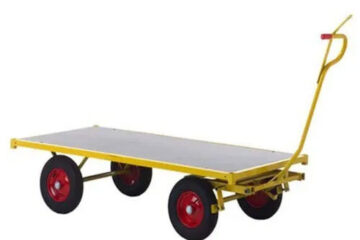Do Bridge Loans Work Well for Farmers?

Farmers often work on a tight budget and may need financial help in the form of loans, mortgages, and advances to ensure that business goes on as usual. However, securing these finances is easier said than done. That is why we witnessed more bankruptcies in agricultural states in 2021.
It also doesn’t help that farmers have very little information about their financing options.
However, they can get adequate capital or financing via “Bridge Loans.” These loans can act as a quick capital generator and are beneficial in times of need. Let’s explore them in further detail.
What Are Bridge Loans?
These are an ideal solution for people seeking short-term financing who do not want to get burdened with extended hectic loan payments. Farmers often need quick cash to run their daily operations, and bridge loans can be a good option.
These loans are more popular for real estate and house financing, but they can also be used for farmland financing and other financial needs like paying off debts or investing. Because of their ability to create a bridge between borrower and capital, they are also called “Bridge Financing.”
How Do Bridge Loans Work?
Bridge loans are short term loans that must be paid back within six months to three years. Usually, the lender can roll up the interest and fees into a single repayment to be delivered at the end of the loan term. And by then, the borrower can arrange for an alternative source of funds.
The different types of bridge loans primarily vary in payback time and loan amount.
While farmers can choose how much they want and when they will be able to pay it back, they may have issues with some of its stipulations. For starters, bridge loans have higher interest rates than many traditional loans, usually between 8.5% to 10.5%. This is considerably higher compared to mortgage loans, which are 5%.
In the case of farmland financing, the lender has to offer some property, farm goods, or inventory as collateral, also known as a security deposit. Other standard conditions for bridge loans include:
- The typical loan time is six to twelve months. However, farmers can also avail extended payback times
- Bridge loans often do not get extended unless the borrower plans to get a long-term loan from the same lending entity
- The farmer’s credit score can also affect the amount and duration of the bridge loan
Bridge loans are similar to standard mortgage loans as the borrowers must show a good credit score and an excellent debt-to-income (DTI) ratio. Lenders can allow farmers to get up to 80% equity depending on their credit history.
How Can Farmers Benefit From Bridge Loans?
Farmers looking to buy new land or building need a long-term loan or mortgage. This long-run financing requires a downpayment, which can be a considerable amount. The problem is that farmers often do not have enough money for the down payment since most of their cash is stuck in the day-to-day management of their farms.
Bridge loans are handy in such cases, helping them make the down payment and get a mortgage or loan. So essentially, this kind of financing can help farmers make the most of short-notice opportunities such as property or equipment purchases.
Advantages Of Bridge Loans For Farmers
A bridge loan offers a significant amount of finance for a short period, making it ideal for short-term usage and to “bridge” the gap in the capital until the borrower can secure long-term finance.
This offers the following benefits for farmers:
Instant Cash In Hand
Farmers have a lot to worry about, including their regular expenses, crops, livestock, and equipment maintenance. So, it’s no wonder that they struggle with paying back creditors and keeping up with the repairs, or they can face a disaster that can temporarily halt production.
In such cases, cash in hand is necessary to keep the daily operation going. Through bridge loans, farmers can get instant cash to rebuild, expand or carry on their day-to-day operations.
Fast Financing
Unlike traditional loans, bridge loans are easy to acquire. They do not require a typical long process and that much paperwork. For farmers who are looking for fast financing, then a bridge loan is an ideal option for them.
Moreover, after the paperwork and the requirements, farmers will take less time to get the amount compared to conventional loans.
Flexible Payments
Bridge payments are flexible and offer a series of payment plans, such as deferred payments. For farmers, it is crucial to have access to every income and cash flow as they usually work under a tight budget.
What Are The Cons Of Bridge Loans For Farmers
Bridge loans ease things and provide financing for farmers, but they should also know its challenges and drawbacks.
High-Interest Rates
As we have discussed above, bridge loans have high-interest loans than many other traditional and non-traditional loans. These can burden farmers.
Challenging Down Payment
Most lenders require 20% of home equity from borrowers, making the borrower uncomfortable, and many hesitate to get bridge loans.
Collateral
Collateral means pledging some assets or inventory as security to become eligible for a loan. Bridge loan lenders require collateral from farmers and others for their loan security.
Double Payments
We know that the interest rates are higher for bridge loans, but people often pay for multiple debts like car insurance, mortgages, or other loans. It can become difficult for farmers to pay back various loans and still be able to afford bridge payments.
Bridge loans are perfect for farmers with urgent financing needs and to take advantage of opportunities that require them to move fast. Remember, no other loan program provides instant cash flexibility better than bridge loans.
Your bridge loan requirements can become much easier with a reliable and trusted lending partner. This article is intended for educational purposes only. But if you need expert advice, get hold of one of the best lenders. United Farm Mortgage provides the best financing solutions to agriculture land owners and farmers in more than 50 states. Contact us today!



















